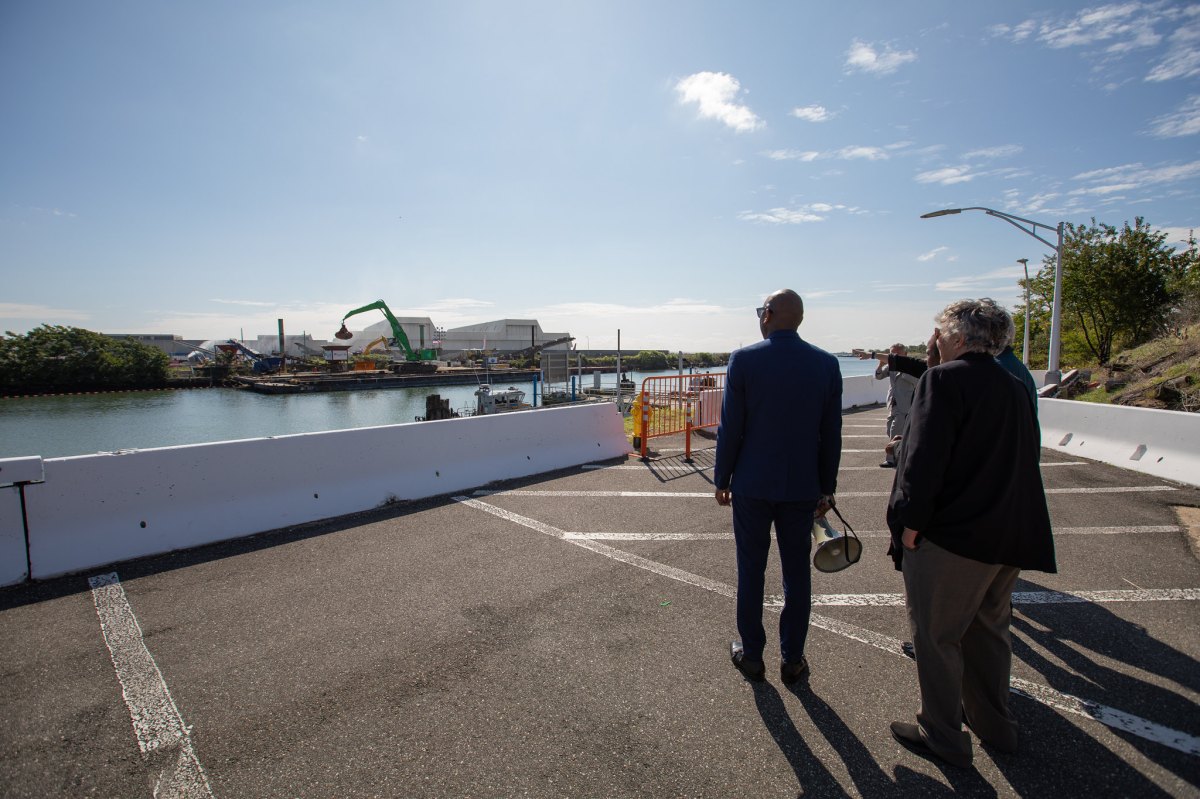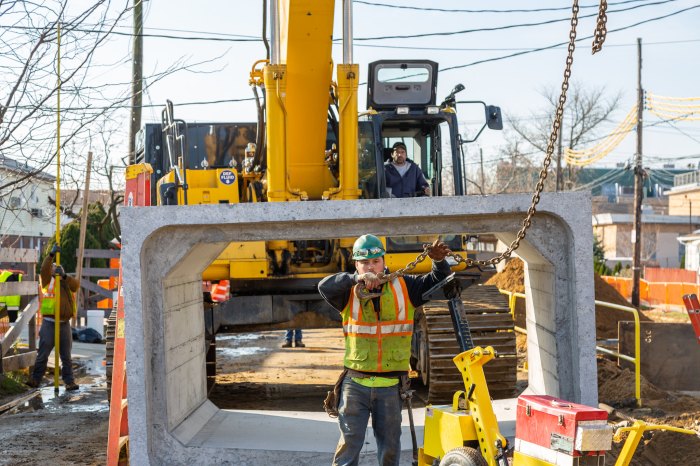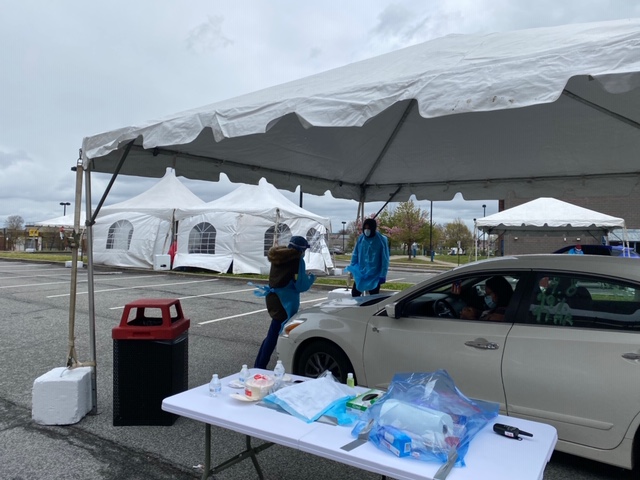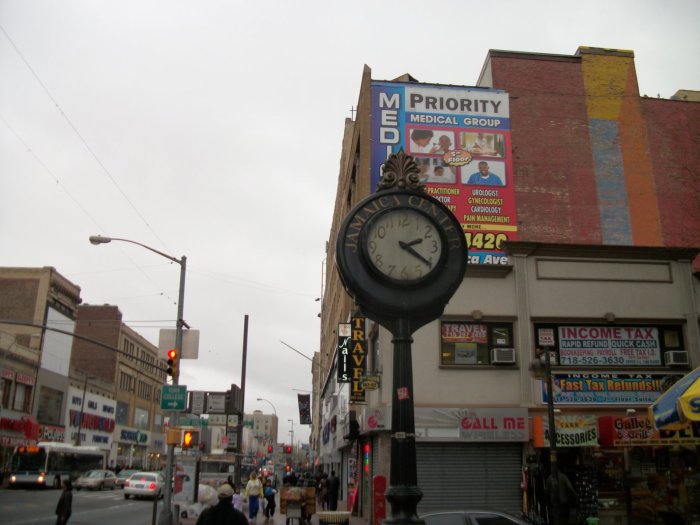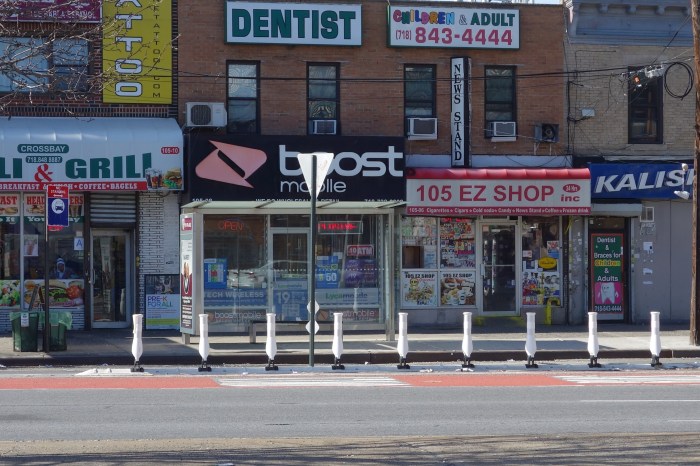Southeast Queens residents who are forced to deal with chronic traffic congestion around JFK Airport will get much-needed relief after the Port Authority of New York and New Jersey announced on Sept. 27 that operations have started at a new construction support facility along the Bergen Basin.
The support facility will eliminate more than 300,000 truck trips along nearby streets by shifting to the use of barges to move material to and from the $19 billion airport redevelopment. The first barge to deliver material to the airport’s construction support facility was unloaded at a dock along Bergen Basin on the western edge of JFK, across from Hamilton Beach.
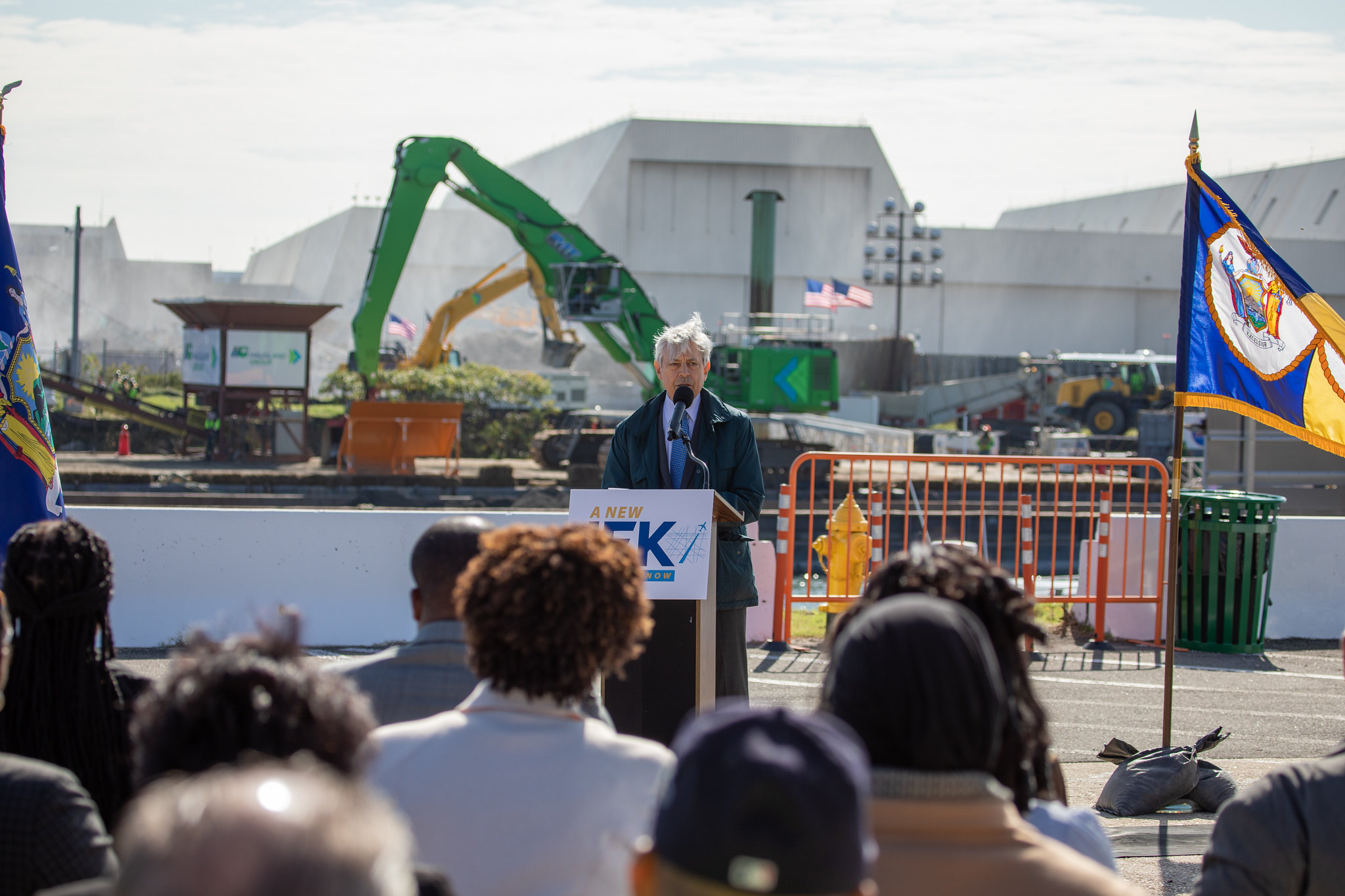
“Creating a construction support facility that enables us to eliminate hundreds of thousands of diesel-powered trucks from traveling across local streets is proof of the Port Authority’s commitment to our goal of reaching net-zero greenhouse gas emissions agency-wide by 2050,” Port Authority Executive Director Rick Cotton said. “It also reflects our commitment to the community to reduce the impact of this historic construction project on their neighborhoods and to enable minority- and women-owned businesses as well as local businesses to participate in an unprecedented number of business opportunities.”
The massive $19 billion project will replace six old terminals with four much larger state-of-the-art terminals and overhaul the airport’s road network over the next four to five years.
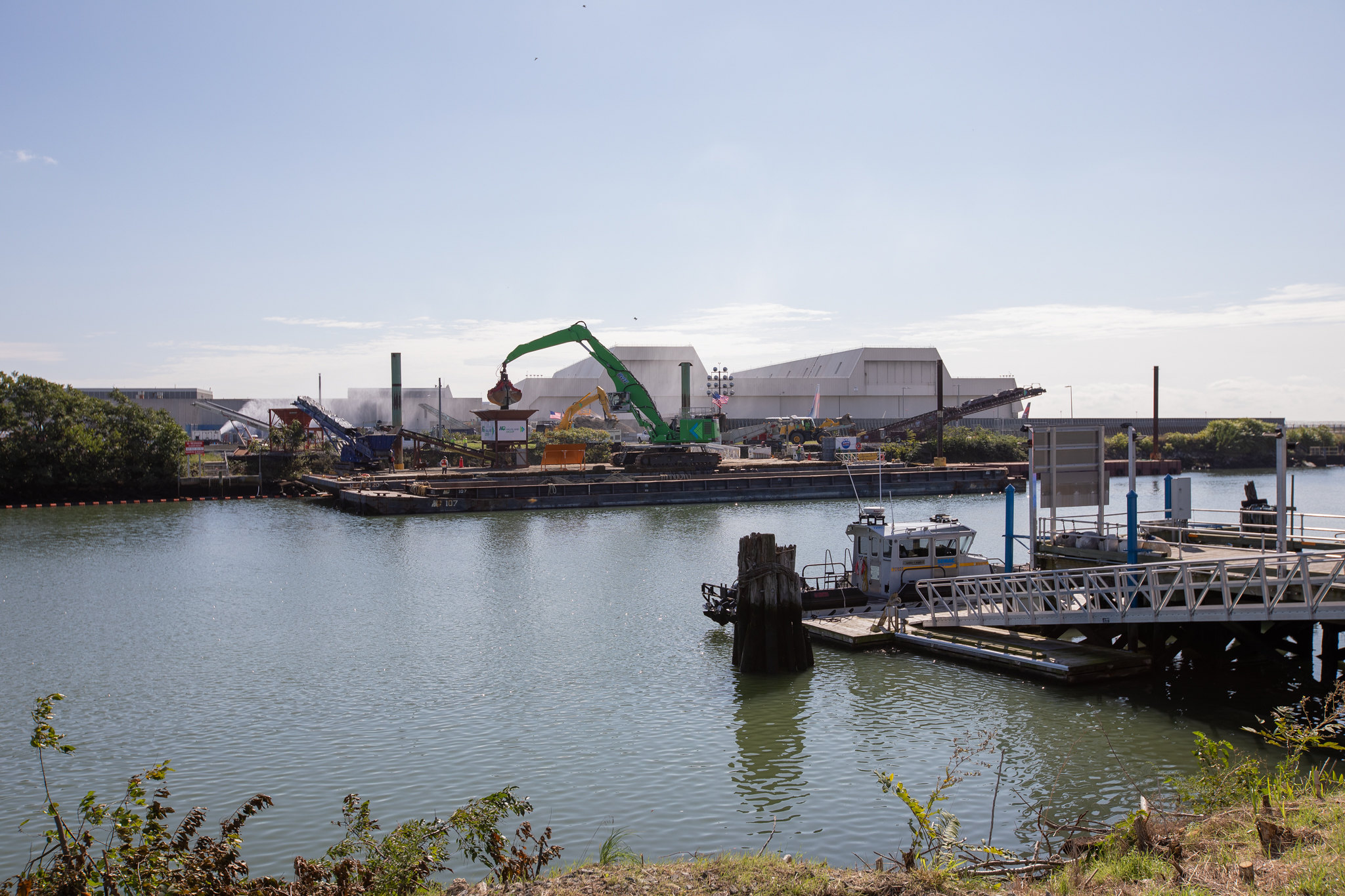
Queens Borough President Donovan Richards observed the unloading of the first barge at the facility, which alone eliminated the need for nearly 200 trucks to carry the equivalent load.
“With this new construction support facility, we are not only getting countless trucks off local community streets and reducing vehicle pollution, we are doing so while connecting area small businesses to one of the largest and most critical economic development projects in Queens’ history,” Richards said. “The $19 billion redevelopment of Kennedy Airport is much more than a massive investment in the region’s economy, the aviation industry and the millions of travelers who use the airport each year. It’s also a seismic commitment to safer streets, cleaner air and the airport’s neighbors — the residents and small businesses in the surrounding communities that deserve to benefit from the redevelopment plan as much as anyone else.”
Congressman Gregory Meeks, who co-chairs the JFK Redevelopment Community Advisory Council with Richards, explained why the construction support facility is an important piece of the larger airport redevelopment.
“Our port is the economic hub of New York City and JFK International Airport is at the heart of my district,” Meeks said. “This project allows for both entities to continue to thrive. It also simplifies the construction process and allows for residents to have additional employment opportunities. In the coming weeks, you can expect fewer truck trips down local streets, reduced environmental impact in nearby neighborhoods, and significantly lower noise pollution for our communities.”
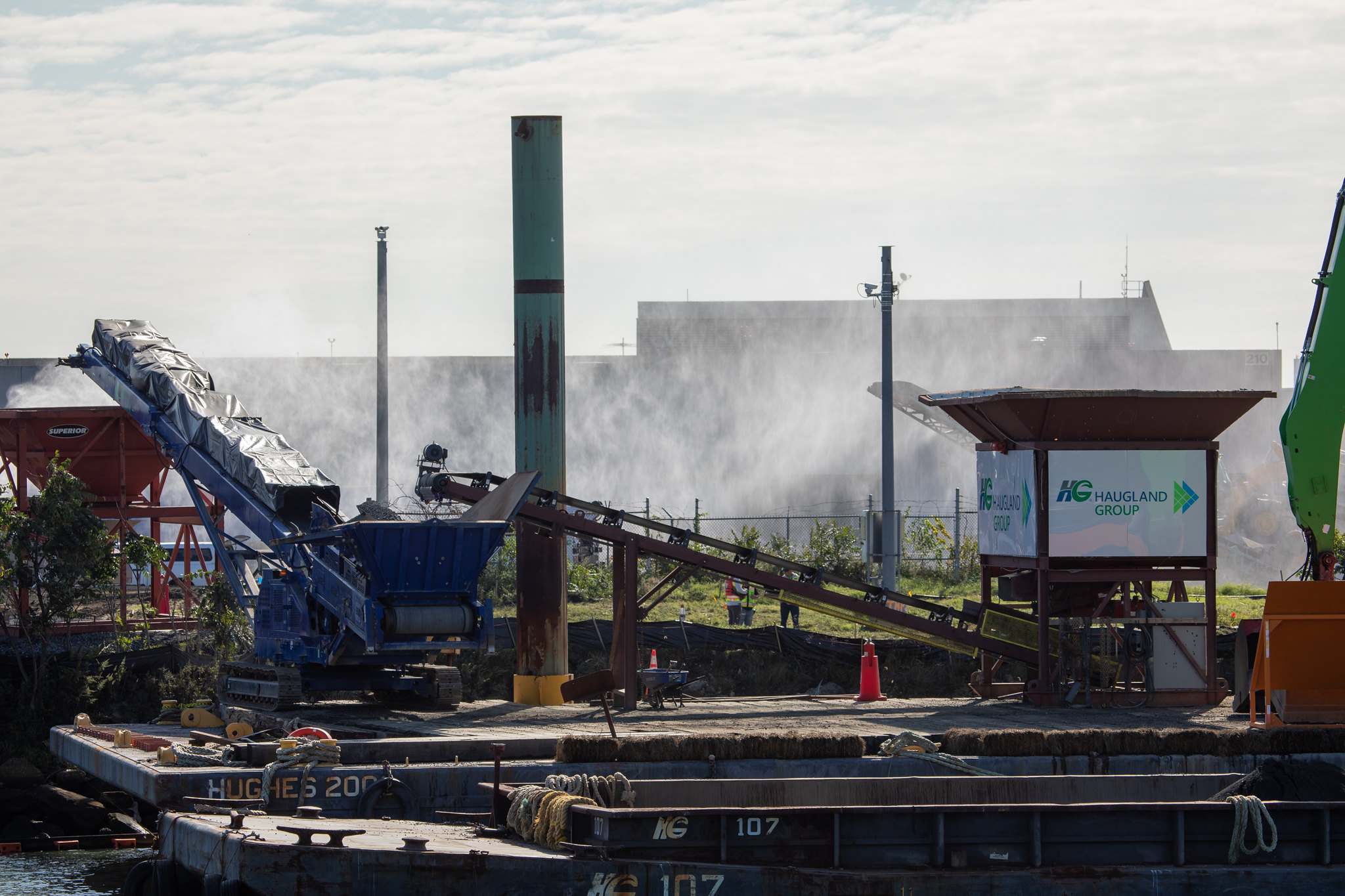
The Advisory Council is comprised of elected leaders, business and nonprofit organizations, civic groups, clergy from across Southeast Queens and the Rockaways, and community boards.
“Community Board 10 welcomes this new facility to our area. Virtually all of our 130,000-plus residents are impacted in one way or another by the presence of JFK Airport here,” said Betty Braton, who chairs Queens Community Board 10. “For many that’s aircraft noise, for many others it’s trucking, for some it’s both. We look forward to the completion of the JFK redevelopment and we appreciate that this construction facility will support that major construction work by drastically reducing truck traffic. Doing concrete production on-airport and using the waterways to move outgoing debris and incoming materials is a plus for all of our residents as it will reduce truck traffic as well as reducing noise and emissions that trucking brings. Community Board 10’s residents appreciate the Port Authority’s effort to advance a major construction project with a focus on resolving community concerns as part of the mix.”
The Port Authority anticipates that barges will carry bulk materials such as sand, aggregate, steel and other building materials to the airport and remove non-hazardous debris and soil from the construction sites on the airport, with the capacity to responsibly recycle up to 75% of certain categories of construction debris. The use of alternative fuels for marine equipment, if available, is also encouraged. The concrete batch plant will utilize local suppliers from the communities immediately surrounding JFK. It will supply all the concrete to support construction, including for the two largest terminals and all the roads, parking garages and other infrastructure at JFK.
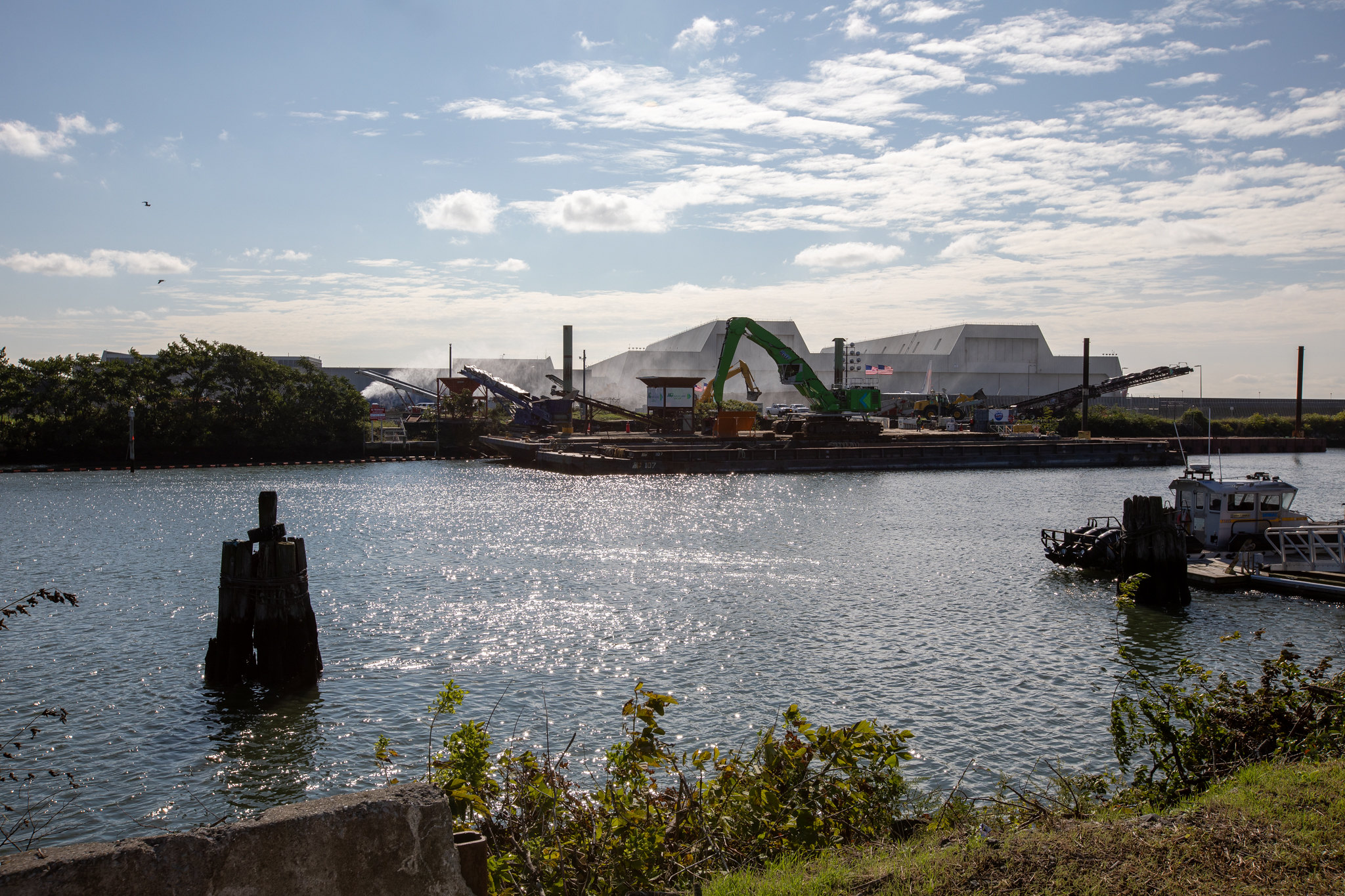
“The transformation of JFK International Airport into what will soon be a world-class, global gateway is another example of how the Port Authority is using innovative strategies to move major redevelopment projects forward sustainably while minimizing the impacts of construction on our neighbors,” Port Authority Chairman Kevin O’Toole said. “We are making every effort to create a new airport that our region and our closest neighbors can be proud of.”

